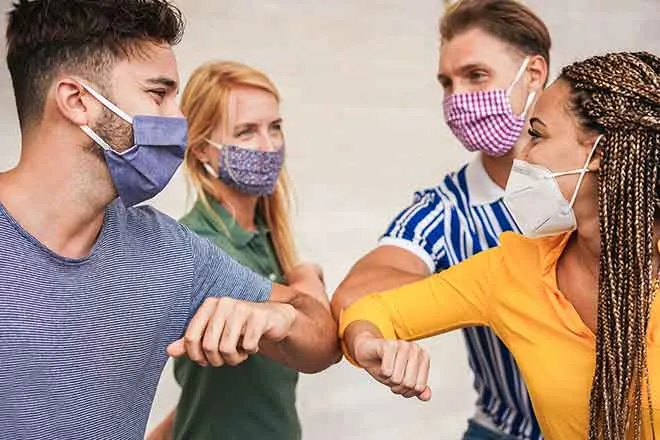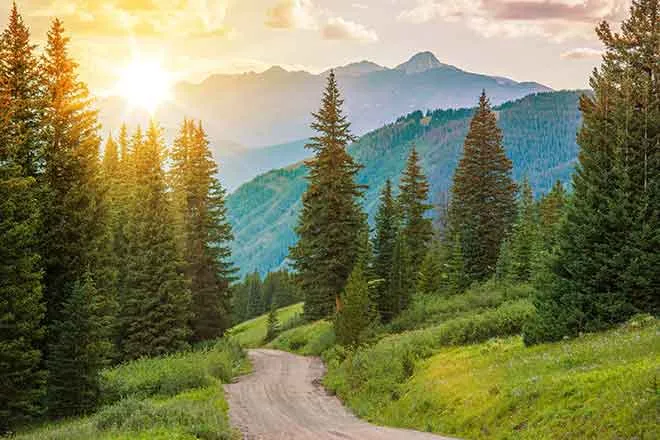
Daily Audio Newscast - March 27, 2024
News from around the nation.
Missed opportunities in 2024 budget, peacekeeping groups say; Abortion is once again before the Supreme Court this time, in pill form; an effort continues to ensure state minimum wage for ME farmworkers; Montana land proposed for solar power.
TRANSCRIPT
The Public News Service Dillon Newscast, March 27, 2024.
I'm Mike Clifford.
Groups supporting peace around the globe say the budget approved by the Congress is lacking crucial components.
Our Eric Tayenoff explains.
After a months long stalemate, Congress has approved the fiscal year 2024 budget.
But Megan Rogers with the group Nonviolent Peace Force says there are cuts across the board that will impact humanitarian aid and civilian support.
She says the bill also doesn't include language recognizing unarmed civilian protection, or UCP, a methodology that peacefully protects civilians in violent conflicts.
Any violent conflict that's making headlines today, there are UCP groups that are working and very effective, have access that other traditional aid groups don't, are equipping and protecting civilians that often go overlooked and disproportionately feel the effects of this violent conflict.
Rogers says UCP is used around the world and the U.S. government provides funds for groups that employ it.
And less than two years after the U.S.
Supreme Court overturned the federal right to an abortion established by Roe vs.
Wade, Yahoo News reports the conservative majority court is about to weigh in on the issue yet again.
Their report this time, the high court will consider a case that centers around the FDA and their decision to loosen restrictions on how mefapristone, a drug widely used to induce abortions, can be prescribed and dispensed.
During the hearing Tuesday, Justice Neil Gorsuch said the case seems like a prime example of turning what could be a small lawsuit into a nationwide legislative assembly on an FDA rule or any other federal government action.
If the Supreme Court rules against the FDA, the drug could not be prescribed over telehealth visits, among other things.
And new legislation proposed by Maine Governor Janet Mills would ensure thousands of farm workers are eligible to receive the state minimum wage.
Current law requires they be paid at least the federal minimum wage of $7.25 an hour compared to the state minimum wage of $14.15.
But Maine AFL-CIO President Cynthia Finney says the bill still lacks protection from excessive forced overtime or the allowance for an unpaid rest break after six hours of work.
There are jobs that other workers are entitled to already and farm workers are not.
And certainly farm workers work hard enough.
Finney says the legislation would require employers to keep records of their workers' hours and provide them with pay stubs.
Some farmers have opposed the increase in wages and overtime protections, saying it could force them to cut workers' hours.
Farm workers were intentionally excluded from benefits and protections in the National Labor Relations Act, which protects the rights of workers to unionize and collectively bargain.
I'm Catherine Carley reporting.
If passed by lawmakers, the minimum wage for farm workers would take effect in September, the peak harvest time for Maine's blueberries and apple.
This is Public News Service.
The Bureau of Land Management has proposed expanding the public land available for solar power production in 11 states, including Montana.
The BLM's Western Solar Plan builds on the version first released in 2012 and focuses on harnessing the potential in western and plain states that are most amenable to solar production.
The Montana Environmental Information Center's Nick Fitzmaurice says the expanded plan reflects the country's growing demand for solar energy.
It's projected that 700,000 acres of solar development are going to be needed to meet future clean energy goals.
And in the range of about 5,000 of those acres are going to be in Montana.
So it's a small part of the picture, but important that all our open land that is able to contribute to solar can do so.
The Wilderness Society released a statement supporting the proposed Western Solar Plan expansion.
The BLM is taking public comment on it until April 18th.
I'm Mark Moran.
Congress just avoided a partial government shutdown by approving a budget into this fall, but a new blueprint is renewing debate about a key safety net program.
For the 2025 fiscal year, a House caucus made up of more than 170 Republican lawmakers has issued its proposed outline.
One provision calls for raising the retirement age for Social Security eligibility to account for increases in life expectancy.
Nancy Altman with the group Social Security Works says like past suggestions from the caucus, this should be considered a non-starter, arguing it essentially amounts to a cut.
You never catch up.
Even if you work till age 70, your benefit's going to be about 7 percent lower than it is under current law.
There was no specific higher age outline, but AARP North Dakota also sounded the alarm about the plan, urging its members to demand no cuts.
I'm Mike Mohan.
Finally, from our daddy Aramligam, the benefit payments that miners sick with black lung receive aren't keeping pace with the cost of living.
He adds lagging benefits are especially troubling when minors are increasingly developing black lung at younger ages, largely due to exposure to toxic silica dust.
Younger minors are getting diagnosed with stage 3 black lung, and they're having to quit mining in their 30s or 40s.
So they're losing, you know, possibly 20 years, 30 years of work history.
They're unable to draw down that retirement fund.
Around 16 percent of the nation's coal workers are living with black lung.
And after decades of improvement, the number of cases is on the rise again, according to the American Lung Association.
One National Institute for Occupational Safety and Health study found are more likely than their predecessors to die from coal workers pneumoconiosis, chronic obstructive pulmonary disease and lung cancer.
This is Mike Clifford for Public News Service, member endlessly supported.
Here's a great radio stations, your favorite podcast platform.
Find our trust indicators at publicnewsservice.org.
















